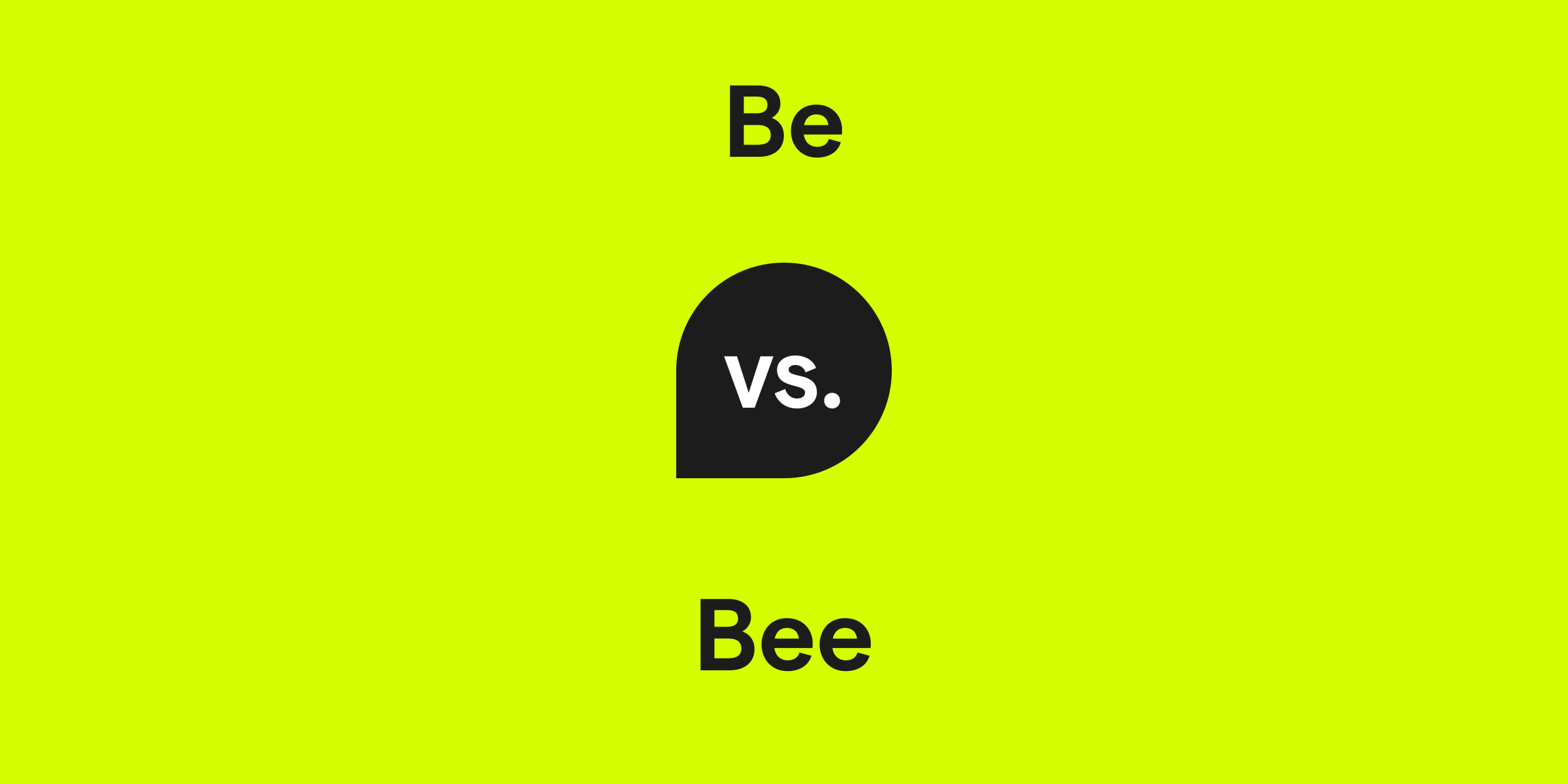Be vs. Bee: What's the Difference?
Understanding the difference between be and bee is crucial for clear communication. Be is a verb that signifies existence or identity, often used as an auxiliary verb in various tenses. In contrast, bee refers to a flying insect known for its role in pollination and producing honey. While they sound identical, they are distinct in meaning and function.

How do you use the word be in a sentence?
The word be is used to describe the existence or state of a subject. It is one of the most common verbs in English, serving as a main verb and helping form continuous and passive voice structures. Be can also express commands or requests in an imperative mood.
Examples of be in a sentence
- I just want to be happy.
- He will be arriving shortly.
- Be quiet while the baby is sleeping.
How do you use the word bee in a sentence?
The word bee is used to specify a particular type of insect known for its role in pollination. It also symbolizes hard work and collaboration due to the social nature of bee colonies. Bee can be used both literally, referring to the insect, and metaphorically, relating to activities like a 'spelling bee'.
Examples of bee in a sentence
- A bee landed on the flower to collect nectar.
- She is studying for the National Spelling Bee.
- The buzzing of bees filled the summer air.
Be and bee definition, parts of speech, and pronunciation
Be definition:
Be is an irregular verb used to indicate the existence or nature of a subject or the state of being. As an auxiliary verb, it accompanies other verbs to form tenses such as the present continuous or the passive voice.
Be parts of speech:
Be pronunciation:
Be is pronounced as /biː/, rhyming with 'see' and 'me'.
Bee definition:
A bee is a winged insect of the superfamily Apoidea, known for its pollination activities and honey production. The term is commonly used to refer to any insect of the order Hymenoptera that possesses a sting and produces honey.
Bee parts of speech:
Bee pronunciation:
Bee is pronounced as /biː/, identical to 'be', and rhymes with 'sea' and 'key'.
Be is an irregular verb used to indicate the existence or nature of a subject or the state of being. As an auxiliary verb, it accompanies other verbs to form tenses such as the present continuous or the passive voice.
Be parts of speech:
- As a main verb: He wants to be a doctor when he grows up.
- As an auxiliary verb: They are studying for their exams.
Be pronunciation:
Be is pronounced as /biː/, rhyming with 'see' and 'me'.
Bee definition:
A bee is a winged insect of the superfamily Apoidea, known for its pollination activities and honey production. The term is commonly used to refer to any insect of the order Hymenoptera that possesses a sting and produces honey.
Bee parts of speech:
- As a noun: A bee's hive is a complex structure.
- As a symbol in a compound noun: He will compete in the spelling bee next week.
Bee pronunciation:
Bee is pronounced as /biː/, identical to 'be', and rhymes with 'sea' and 'key'.
Be vs. Bee in a nutshell
Though they share an identical pronunciation, be and bee serve different purposes. Be is a versatile verb integral to expressing states of being and forming grammatical constructs. On the flip side, bee is a noun labeling a specific insect valued for its ecological contributions. Recognizing their distinct usages ensures precise and effective use of these homophones in both writing and speech.
Get AI Writing Assistance Wherever You Type
Make sure your vocabulary is on point and every punctuation mark is in the right place, no matter where you’re working. Grammarly works across more than 1 million websites and apps so you can improve your writing without copying, pasting, or breaking focus.

More Commonly Confused Words
Interest piqued? Pore (not pour) over other commonly confused words to help your writing reach peak (not peek) performance.